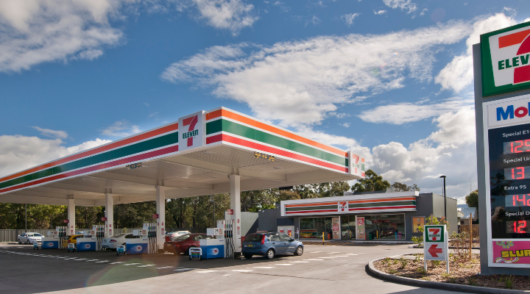
Controversial ‘no-surcharge’ rules, which ban buy-now-pay-later merchants from passing on margin-crushing fees, have missed a mention in a new suite of self-regulations published by the industry on Wednesday.
Fintech giants Afterpay and Zip are among the proposed signatories to a new buy-now-pay-later (BNPL) code of conduct, which purports to address some of the more egregious practices occurring across the industry.
But while BNPL platforms have promised to cap late fees for customers and refrain from targeting the financially vulnerable, the draft code makes no mention of small business complaints about high commission rates.
This is despite a set of new proposed “minimum standards” for retail merchants, which will require BNPL platforms to ensure their partners market services clearly and safeguard consumer confidentiality.
Independent retailers, who in recent years have adopted BNPL in earnest as a way to attract new (particularly young) customers, have complained leaders such as Afterpay prevent them from passing on commission fees, which eat away at already thin margins.
The cost of accepting a BNPL payment is typically in the 3-6% range, which is typically higher than the cost of accepting other electronic payments.
At the same time, merchants SmartCompany has spoken to feel they are forced to use the services, or else miss out on what has fast become a competitive standard in Australia.
The Reserve Bank has cast its eye over the issue, asking retailers for feedback on whether regulators should step in to ban the practice last December.
But the ‘no surcharge’ rules didn’t appear to be on the Australian Finance Industry Association’s (AFIA) radar on Wednesday when it released the draft code for a six-week public consultation without a single mention of surcharging or merchant commissions.
The industry lobby group’s chief Diane Tate said the new code was developed to strengthen consumer protections, but that AFIA would soon make a submission to the Reserve Bank consultations.
“It would be inappropriate for an industry association that doesn’t have merchants as our members to dictate in that space,” Tate tells SmartCompany.
The code does, however, impose de-facto rules on merchants, included in a section outlining “minimum standards” for retail partners, requiring BNPL platforms to ensure partner firms satisfy a range of criteria.
This includes a requirement to respond to consumer complaints on a “timely basis”, “communicate clearly” with customers in marketing material related to BNPL services and require their own workers to understand those standards.
“Customers need to be very clear about the services they’re receiving and the rights they have. Part of that is ensuring the marketing of these services is done in an appropriate and transparent way,” Tate says.
But Australian Retailers Association (ARA) executive director Russell Zimmerman, an advocate of banning the no-surcharge rules, says regulation of the fast-growing BNPL sector should be a two-way street.
“If you’re going to have a code of conduct then you should include in it everything that you want,” Zimmerman tells SmartCompany.
Zimmerman says retailers want the freedom to charge extra for BNPL payments, where appropriate, given the commissions they’re forced to pay for offering the services.
“We want to see the Reserve Bank mandate that buy-now-pay-later merchants can surcharge,” he says.
Only 12 months ago, BNPL providers were staring down the barrel of tougher consumer credit protection laws already imposed on major banks and credit card providers.
Leaders such as Afterpay and Zip opposed being brought under national consumer credit laws, supporting a separate move to extend ASIC’s product intervention powers to cover the industry.
In the end, a Senate committee stopped short of recommending the Morrison government pursue a broader legislative crackdown, opening the door to an industry-led approach.
The draft code is the next stage in the corporate regulatory cycle for the BNPL industry, and other players such as Brighte, flexigroup, Latitude, Openpay and Payright will also sign onto the code.
The prospect of federal regulatory scrutiny has now given way to a yet-to-be appointed committee, which will purportedly be independent and will be responsible for enforcing the code.
Possible penalties for non-compliance include formal warnings, requiring a rectification or audit process, and the threat of revoked membership from the lobby group.
Tate said a consumer advocate will be reserved a place on the committee, but did not commit to installing a merchant advocate.
“We’re certainly open-minded to considering that,” Tate says.
In terms of consumer protections, Afterpay and Zip will promise to do many of the things they’re already doing, including assessing customers for suitability, and preventing customers from using their services if they’re already behind on payments.
Zip founder Peter Gray described the code as a “starting point” on Wednesday.
“Zip welcomes this Code because it spells out minimum standards of how firms in the BNPL sector should conduct their business,” he said in a statement.
“Zip will keep implementing its own more robust and consumer-focused standards — which include identity and credit checks — which Zip knows delivers our customers better outcomes.”
This article was first published by Smart Company and has been shared with permission.





